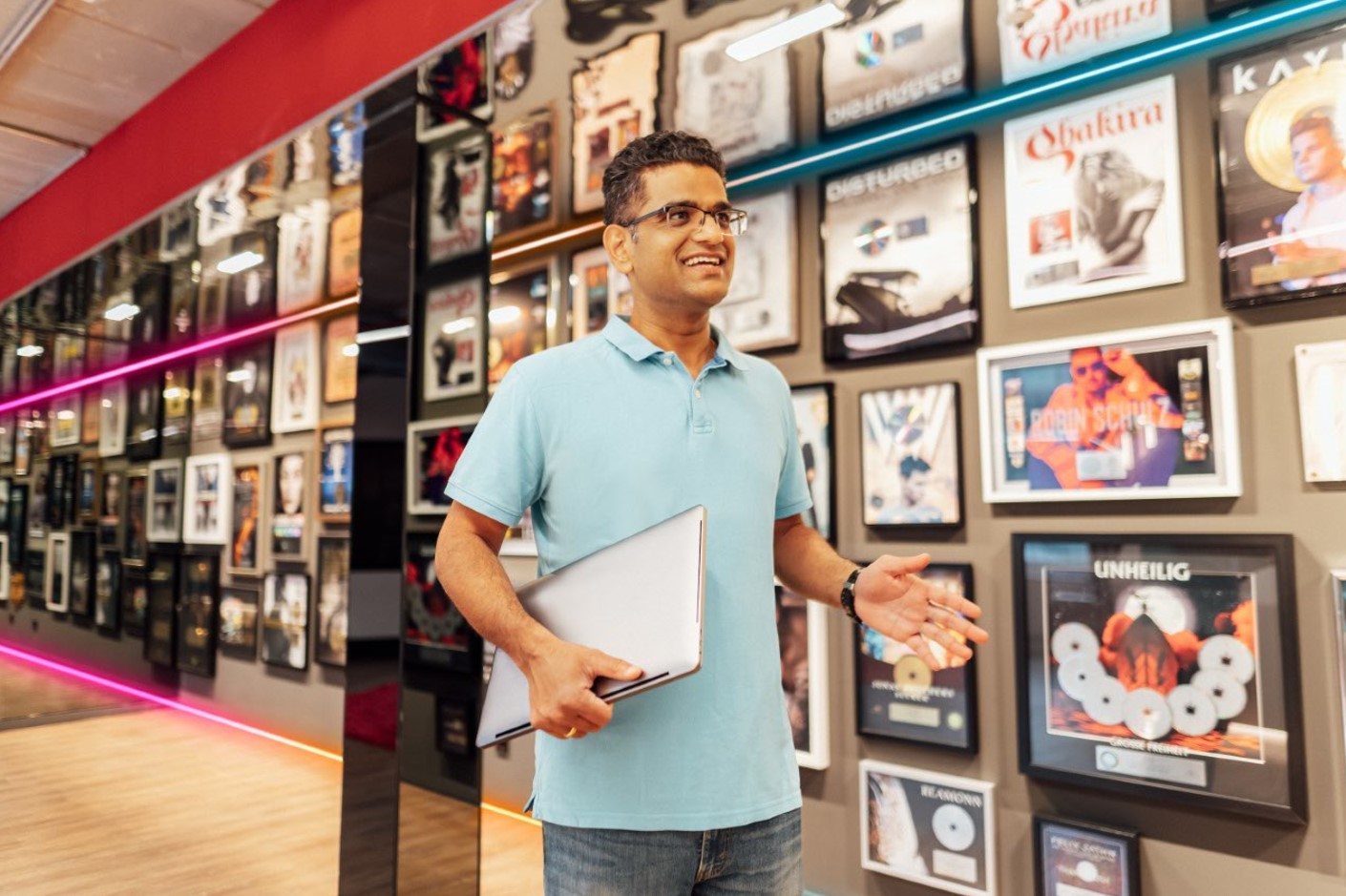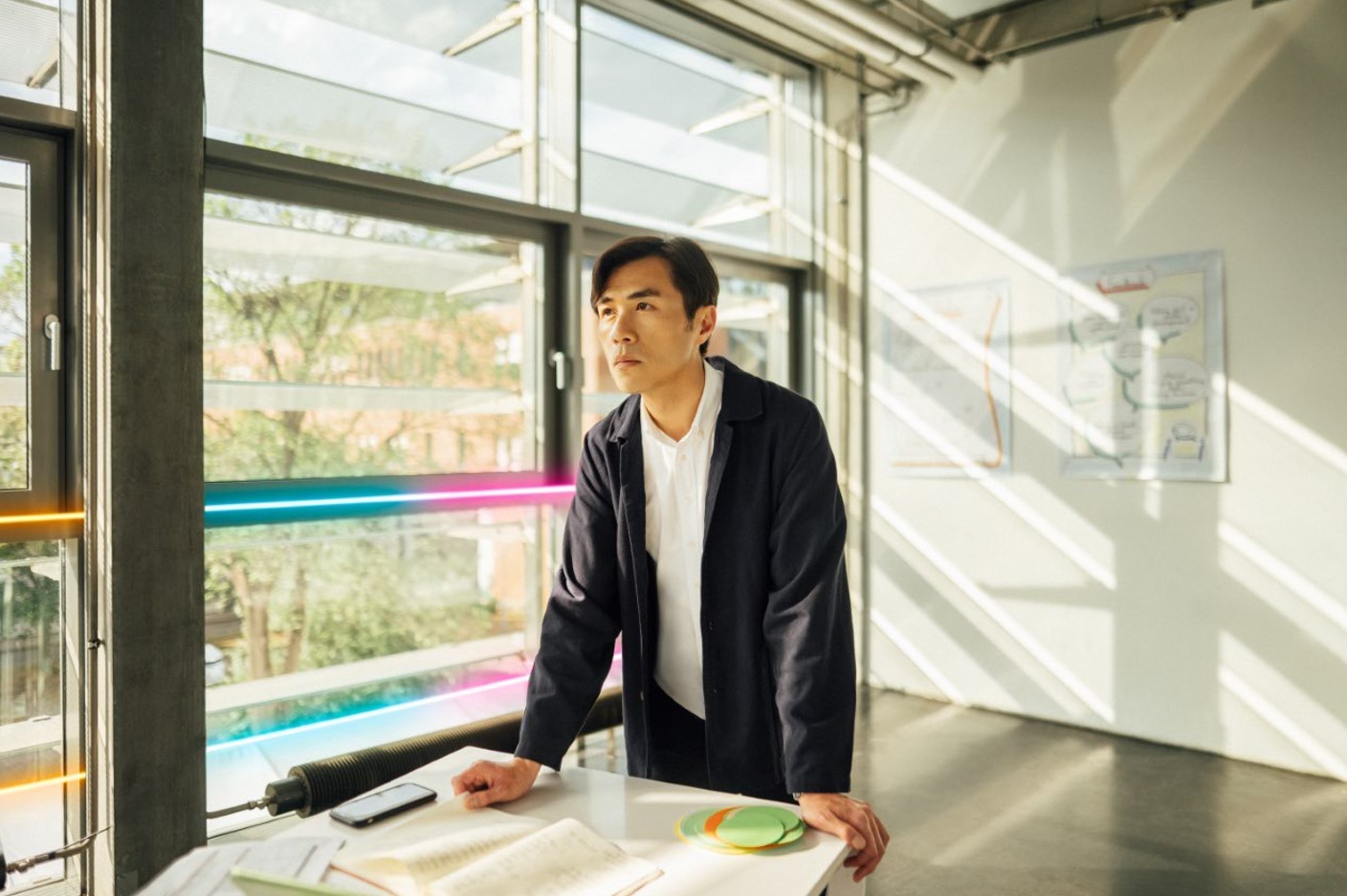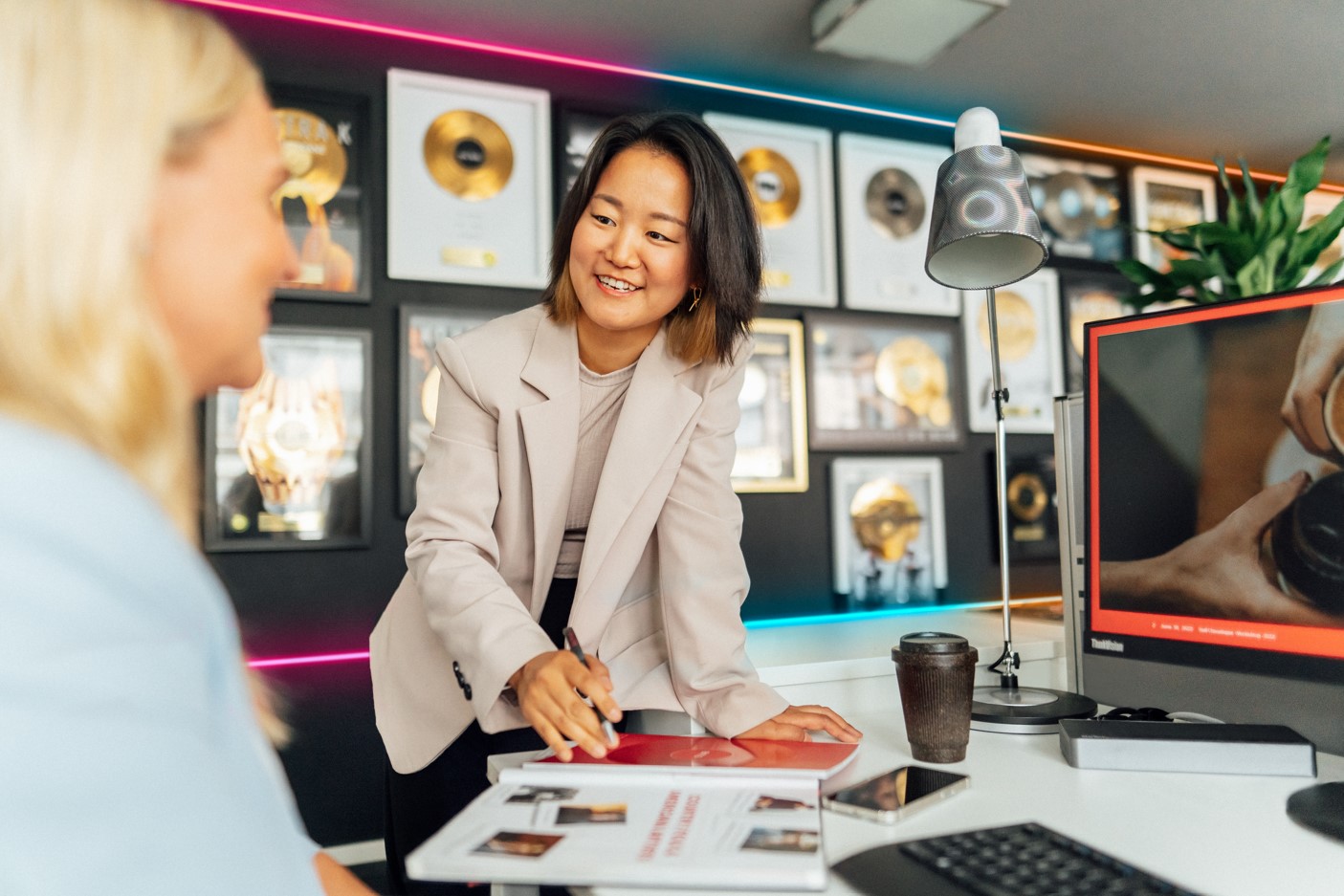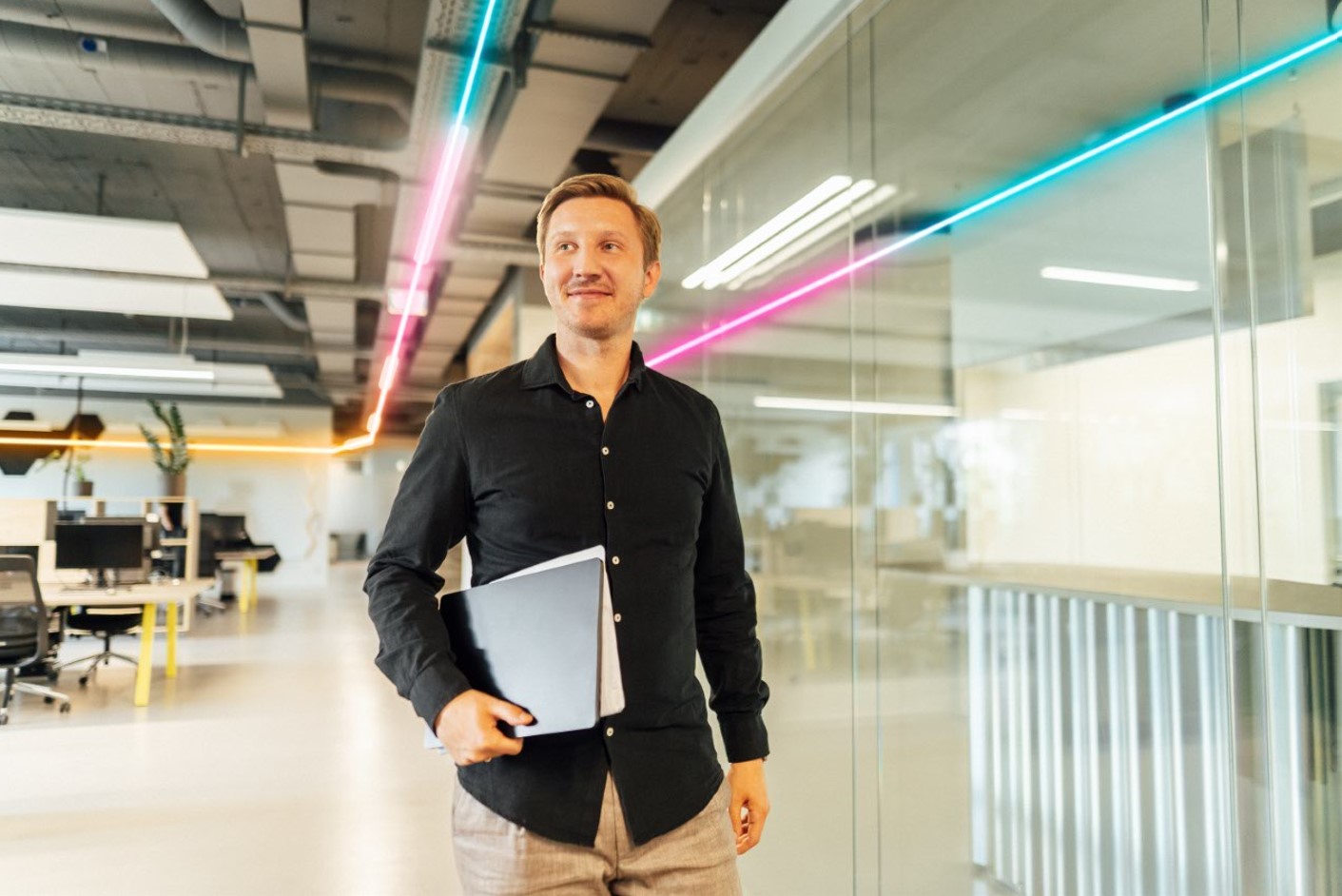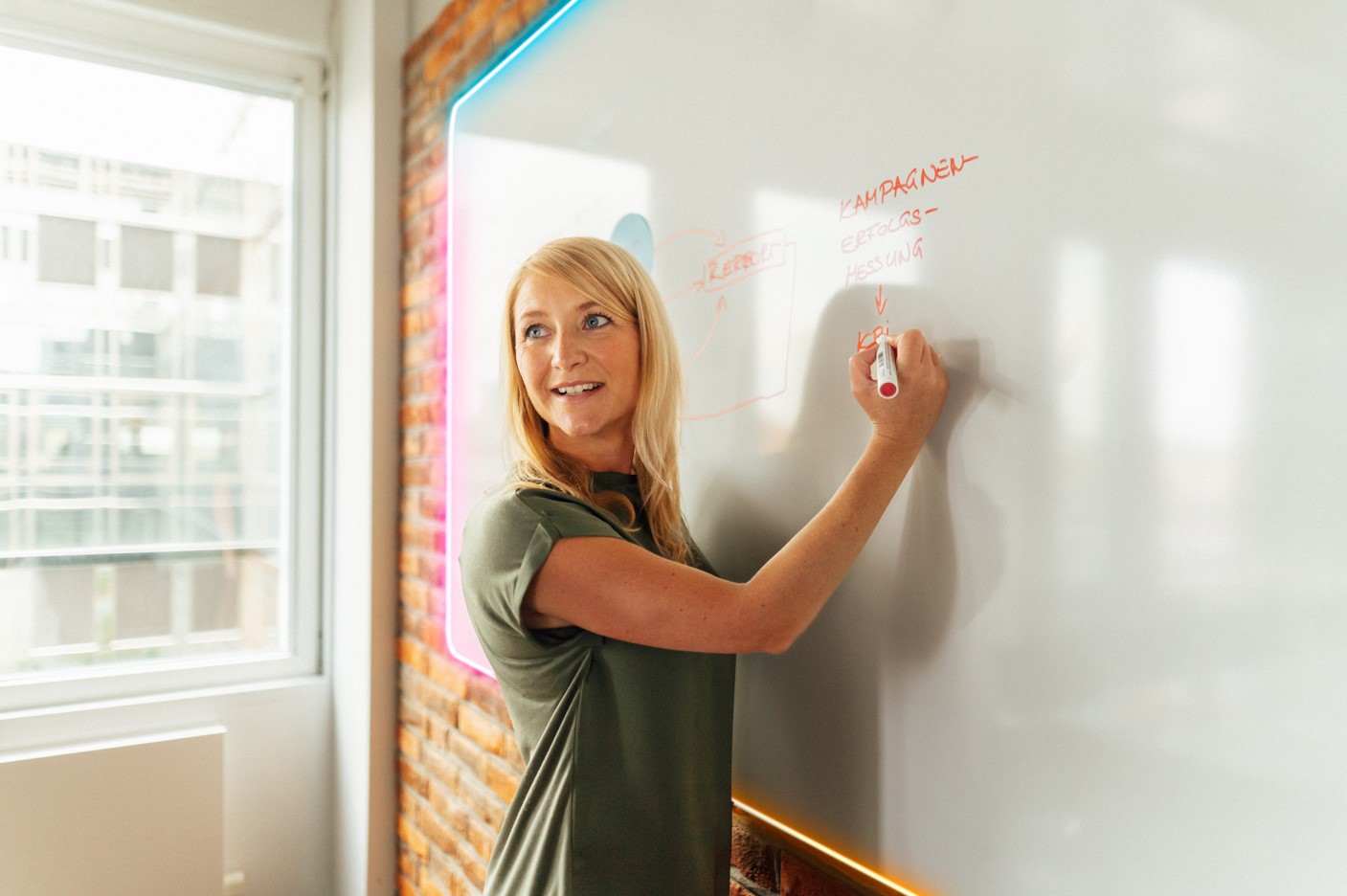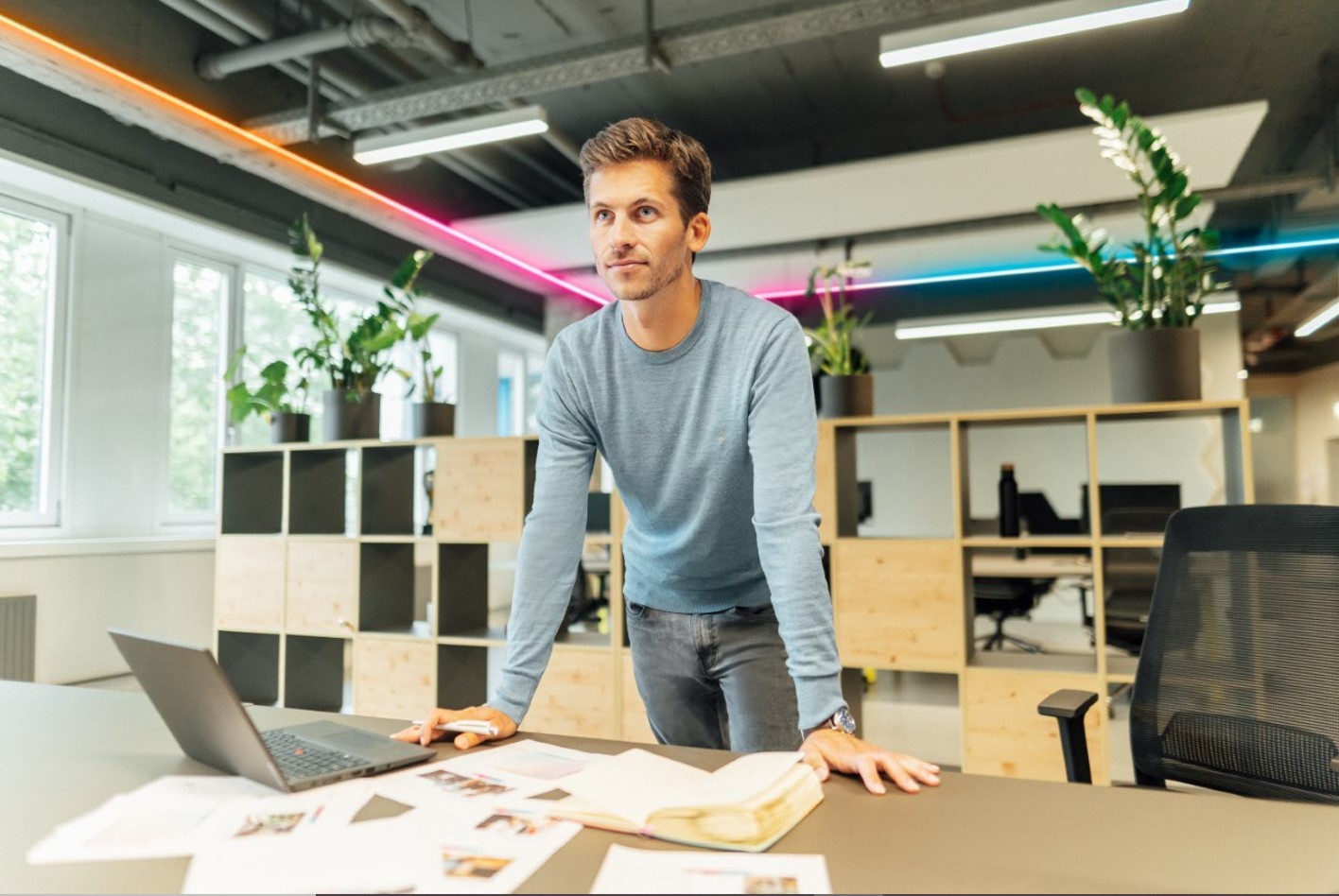Sidharth Ramachandran
Riding a motorbike and exploring interesting places is one of the things Sidharth is passionate about. In his native India he even traveled to the highest motorable road in the world and survived a puncture by the cliff’s edge! His curiosity about people and culture from other parts of the world brought him to Germany at the age of 32. As Senior Director, Knowledge Engineering at RTL Deutschland Sidharth builds the search engine for RTL+ and works towards enriching and organizing the metadata for all RTL content. In his free time, he is looking for the next destination to explore in Europe, by motorbike or by foot.
What did you do before you joined Bertelsmann?
I was working for GfK in Nuremberg for four years before I joined RTL. Before that, I worked in India in the financial services industry.
When did you first hear about Bertelsmann?
When I was still in India, doing my MBA degree, some university acquaintances worked at Bertelsmann India Investments (BII), that’s how I first heard the name. I was always very interested in the startup scene, and in that context, you typically hear and read the names of Silicon Valley corporations. Interestingly, amongst them, BII stood out and that’s what made me curious.
When and why did you decide to join Bertelsmann?
When I was working in the financial services sector, I was creating products for customers like myself. So, in a way I was solving my own problems. In my previous role, I was building products for clients who were manufacturers of electronic products. While it was interesting, it was hard to relate to these kinds of problems in the same way. I wanted to go back to working on B2C problems, and here I am. I am involved in building a streaming app and helping to improve the user experience by building data products, e.g. the search engine. We get very direct feedback and the opportunity to quickly use that to improve our product. That’s what motivated me to join RTL.
How did you describe your job to your father-in-law?
My father-in-law (who is a logistics consultant) watches YouTube a lot, and he loves it. When he searches for a video about blockchain, the first one would be a general introduction while the next one will be, say, “Blockchain in India”, followed by another called “Potentials of Blockchain in the Logistics Industry”. However, there will not be videos on “Blockchain for Farming” or “Blockchain for Finance” because these are not topics he is interested in. He had never thought about how the results appear, or that they are customized to him, and what kind of logic goes into it. This made it very easy for him to understand my job.

"Communication is the most important thing, being open about the good as well as the bad."
Has there ever been a fork in your career path? Which way did you take?
When I graduated from my MBA degree, I was really enamored by a career in management consulting. I participated in several case study competitions and career events and even ended up winning some of them. There was positive feedback and I thought that this could be a career path for me. However, this plan didn’t really work out. I interviewed for a couple of consulting jobs – that didn't go in my favor and I started to have doubts. Around that time, the field of big data was becoming popular and I decided that this would give me a chance to marry my passion for data, business knowledge and tech skills. What’s more, I really enjoyed building things instead of telling people how things should be done. Today, I am very happy to be a hands-on practitioner.
Entrepreneurship and creativity are the core values of Bertelsmann. What do they mean to you?
Entrepreneurship is solving problems with constraints. We are all problem-solvers in our everyday lives. You have to pick up the kids, but you also have this meeting to attend. How do you do it? You need to process 1,000 videos – how can it be done? On the corporate level, there are additional constraints such as scarce human resources, budgetary limits and deadlines. What happens when you add these constraints? You start being creative, you come up with innovative solutions. Each and every one of us is creative in how we solve our problems and deal with the constraints.
What makes a good team player?
Communication is the most important thing, being open about the good as well as the bad. Making sure that others understand what I am saying and vice versa. Emotional intelligence is equally important. You have to be aware of how your team members are feeling, especially now that we work remotely. There’s a lot of stress in people's lives, and it's important to gauge a person’s emotional state. This awareness helps people understand each other and achieve something together.
What do you think makes a company truly responsible?
Like every individual, companies have their goals – they want to achieve certain targets, generate revenues, satisfy the shareholders and so on. But at the end of the day, we are all part of the same ecosystem and we need to make sure that it is healthy. Companies need to be responsible members of this ecosystem by taking care of their employees and encouraging certain behaviors.

"But at the end of the day, we are all part of the same ecosystem and we need to make sure that it is healthy."
Who or what inspires you?
I am really curious about people. There are eight billion individuals in this world, each of us with a different upbringing, different economic backgrounds, different life experiences. When they share their experiences and thoughts with me, that enriches my life. If I could, I’d travel everywhere to find out about all kinds of places, cultures and lifestyles. But, obviously, that’s not possible. However, I have the opportunity to experience these things through people. Speaking to them enlightens and inspires me.
Do you think this has to do with the fact that you've lived in two different continents and two very different cultures?
Absolutely. When I was living in India, I was curious about life elsewhere. It was not so much about work itself, but about working in a very international setting and getting to know people from all over the world and finding out how things work in their respective countries. I had already worked and spent some time in the US and I knew very well that working in another continent gives me the chance to compare and contrast it with the way I grew up and what I already knew. I enjoy that very much.
What is something that people wouldn't assume about you?
Well, I would say the fact that I really love teaching. I was a guest lecturer at a couple of universities in India and also in Nuremberg. I helped a professor design a course and even wrote a book on natural language processing, which I think helped me grow professionally. I was very young when I entered university and didn't know anyone whom I could reach out to for guidance. Finding out what a software engineer actually does would have been much more helpful than the knowledge I acquired from books. That’s why I use every opportunity to talk to young people about my work.
I also provided a talk on natural language processing for Bertelsmann’s Your Campus. And I think that teaching something is the best way to learn something yourself. I always prepare very well for these occasions, and in the process end up learning something new myself.

"If I bring a smile to somebody's face because they watch a video or listen to a podcast they like, that's what matters!"
What matters to you as you create your own career?
I always aim for diversity of experiences. It’s not about planning for a certain position I want to hold in a certain company in five years’ time. Unlike a lot of friends and colleagues who know exactly what they want and when they want it, I like to go with the flow. When I see an opportunity, I will take it. Meanwhile, I'm having a good time adding value. If I bring a smile to somebody's face because they watch a video or listen to a podcast they like, that's what matters!
Which skills will be essential to you personally in the future and how are you planning to develop/enhance these?
Cultural awareness and inclusivity. The workforce becomes ever more diverse, with people from different backgrounds, speaking different languages, working together to achieve a common goal. I need to understand why they behave the way they do. When I came to Germany, I learned a lot in that respect, and it became clear to me how important cultural awareness is. The other thing I need to get better at is being inclusive. For example, I used to greet my team saying “Hey guys” until someone pointed out to me that there are women on the team, too. Since then, I have been much more aware of my language and always make sure that everybody feels welcome.






